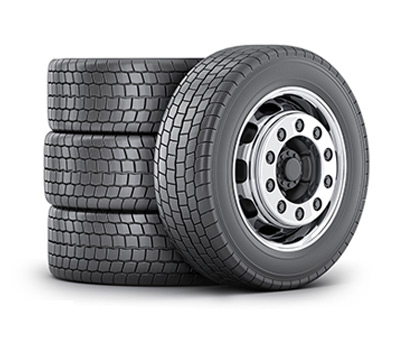adjusting wheels on sliding screen door
Adjusting Wheels on a Sliding Screen Door A Step-by-Step Guide
Sliding screen doors are a popular feature in many homes, providing a seamless transition between indoor and outdoor spaces while keeping insects out. However, over time, these doors can become misaligned or difficult to open due to issues with the wheels. Adjusting the wheels on a sliding screen door is an essential maintenance task that can restore its functionality and ensure smooth operation. This article will guide you through the process of adjusting the wheels on your sliding screen door effectively.
Understanding the Components
Before diving into the adjustment process, it’s helpful to understand the basic components of a sliding screen door. The door itself typically consists of a frame, a screen, and a set of wheels or rollers that allow it to glide along the track. If the wheels are worn out or misaligned, the door can stick, wobble, or derail, leading to frustration and potential damage.
Tools You'll Need
To adjust the wheels, you will need a few basic tools, including
- A screwdriver (usually a Phillips head) - A level (if needed for alignment) - A vacuum or a cloth to clean the track
Step-by-Step Adjustment Process
1. Inspect the Door Open the sliding screen door fully and inspect the wheels and the track. Look for any visible signs of wear, damage, or debris. Cleaning the track can also help; use a vacuum or cloth to remove dirt and obstructions.
2. Remove the Door If necessary, you may need to remove the door for easier access to the wheels. To do this, lift the door up and carefully pull it out of the track. Place it on a flat surface for adjustments.
adjusting wheels on sliding screen door

3. Locate the Wheel Assembly At the bottom of the screen door, you’ll find the wheel assembly. Each wheel is typically attached with screws that can be adjusted to raise or lower the door.
4. Adjust the Wheels Using your screwdriver, tighten or loosen the screws on the wheel assembly. Turning the screw clockwise usually raises the wheel, while turning it counterclockwise lowers it. If the door is sagging, you may need to raise both wheels evenly. Conversely, if it's too high and rubbing against the frame, loosen the screws until the desired height is achieved.
5. Check for Alignment Once you’ve made adjustments, reinsert the door into the track and slide it open and closed to check for smooth operation. If it still sticks or feels imbalanced, repeat the adjustment process as needed. You may also want to use a level to ensure the door is hanging straight.
6. Final Clean-Up After ensuring that the wheels are adjusted correctly and the door operates smoothly, take a moment to clean the track once more and check for any remaining debris. A clean track ensures optimal performance and longevity.
7. Lubricate the Wheels Finally, applying a silicone-based lubricant to the wheels and track can enhance smooth movement. Avoid using oily lubricants, as they can attract dirt and grime.
Maintaining Your Sliding Screen Door
Regular maintenance of your sliding screen door can help prolong its life and maintain seamless function. Here are a few tips
- Clean the Tracks Regularly check and clean the tracks to prevent build-up that can obstruct the door. - Inspect Wheels Periodically inspect the wheels for wear and tear and replace them if necessary. - Avoid Overloading Be cautious not to overload the door with heavy items or force it open forcefully, as this can lead to misalignment over time.
Conclusion
Adjusting the wheels on a sliding screen door is a straightforward process that can significantly improve its functionality. By following the steps outlined in this guide, you can ensure that your door operates smoothly and effectively keeps insects out while allowing fresh air into your home. Regular maintenance will prevent future issues and extend the lifespan of your sliding screen door, enhancing your living space’s overall enjoyment.
-
Wrought Iron Components: Timeless Elegance and Structural StrengthNewsJul.28,2025
-
Window Hardware Essentials: Rollers, Handles, and Locking SolutionsNewsJul.28,2025
-
Small Agricultural Processing Machines: Corn Threshers, Cassava Chippers, Grain Peelers & Chaff CuttersNewsJul.28,2025
-
Sliding Rollers: Smooth, Silent, and Built to LastNewsJul.28,2025
-
Cast Iron Stoves: Timeless Heating with Modern EfficiencyNewsJul.28,2025
-
Cast Iron Pipe and Fitting: Durable, Fire-Resistant Solutions for Plumbing and DrainageNewsJul.28,2025
-
 Wrought Iron Components: Timeless Elegance and Structural StrengthJul-28-2025Wrought Iron Components: Timeless Elegance and Structural Strength
Wrought Iron Components: Timeless Elegance and Structural StrengthJul-28-2025Wrought Iron Components: Timeless Elegance and Structural Strength -
 Window Hardware Essentials: Rollers, Handles, and Locking SolutionsJul-28-2025Window Hardware Essentials: Rollers, Handles, and Locking Solutions
Window Hardware Essentials: Rollers, Handles, and Locking SolutionsJul-28-2025Window Hardware Essentials: Rollers, Handles, and Locking Solutions -
 Small Agricultural Processing Machines: Corn Threshers, Cassava Chippers, Grain Peelers & Chaff CuttersJul-28-2025Small Agricultural Processing Machines: Corn Threshers, Cassava Chippers, Grain Peelers & Chaff Cutters
Small Agricultural Processing Machines: Corn Threshers, Cassava Chippers, Grain Peelers & Chaff CuttersJul-28-2025Small Agricultural Processing Machines: Corn Threshers, Cassava Chippers, Grain Peelers & Chaff Cutters












